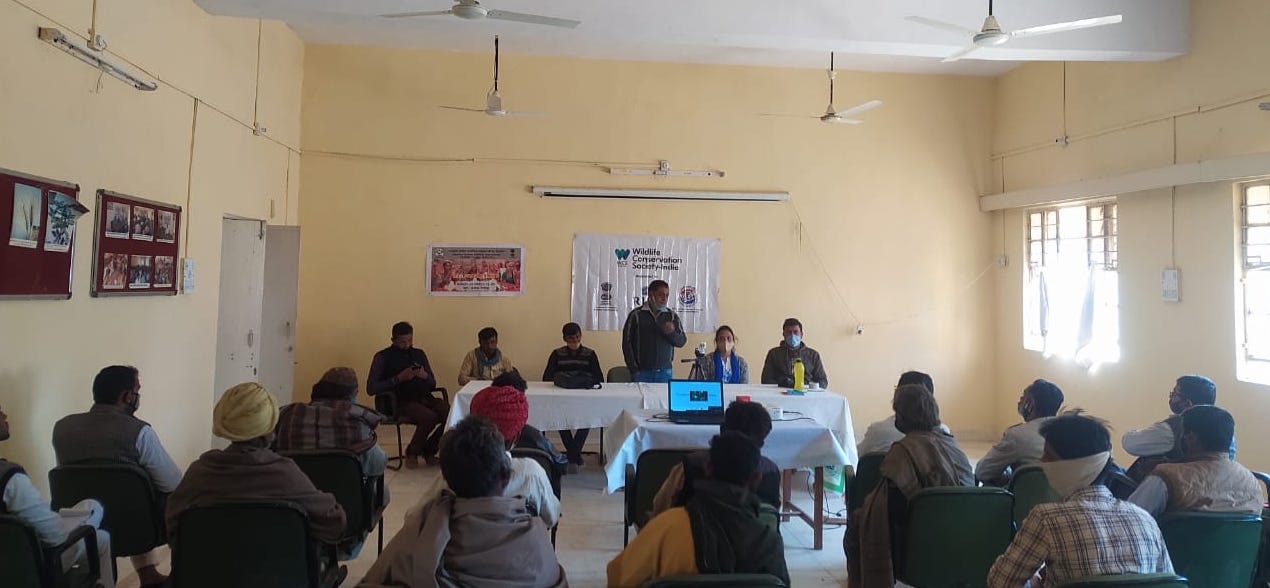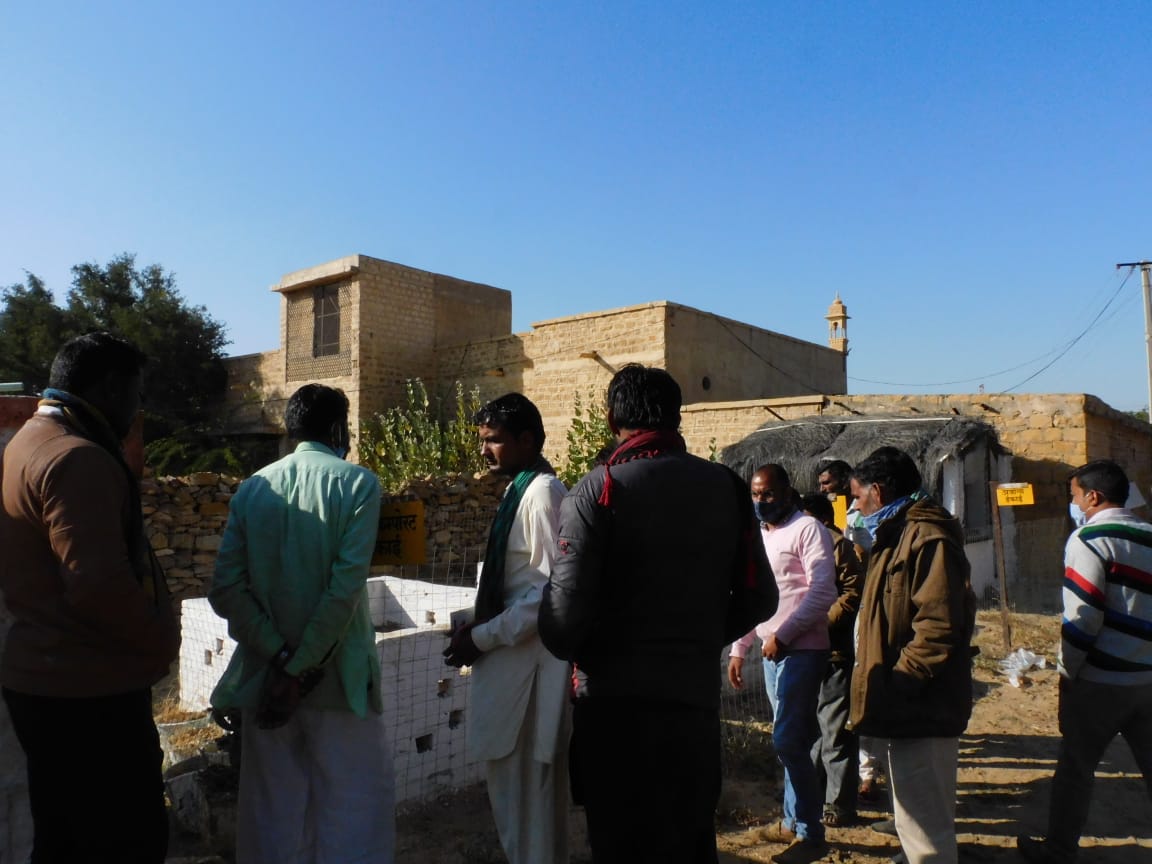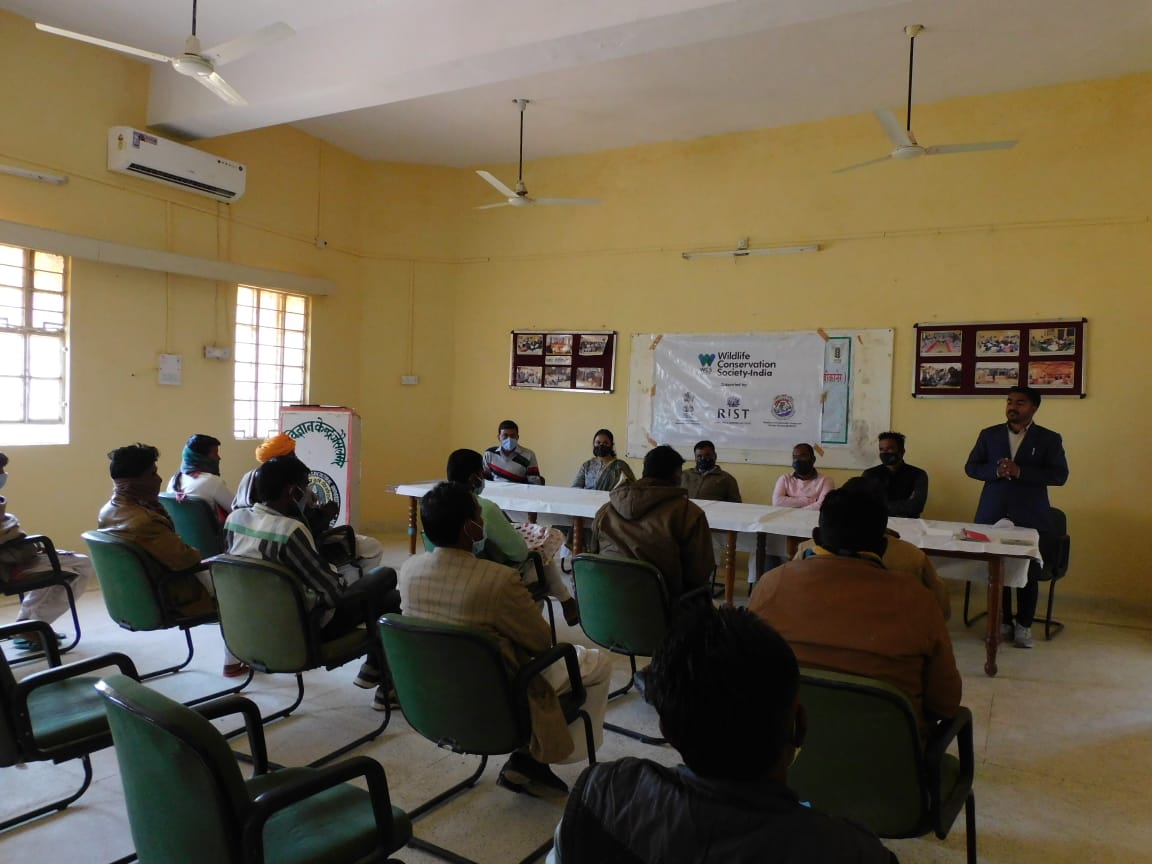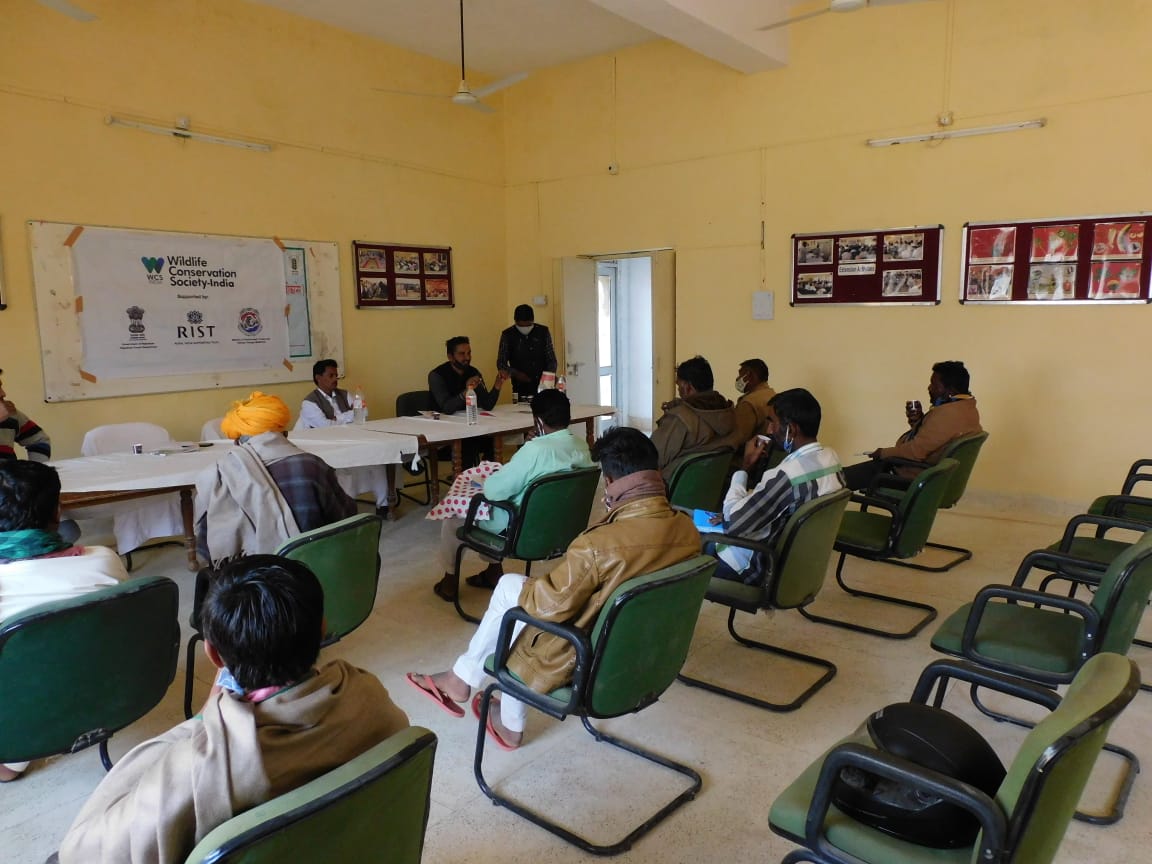By Anil Kumar

We, under our great Indian bustard (GIB) conservation project, are working in Jaisalmer district, Rajasthan, for the conservation of the species by making the local communities partners in our efforts. Both the bird and the livelihood of the rural populations in Jaisalmer are primarily dependent on grasslands for pastoralism, for their survival. While traditionally the grasslands or ‘Gochars’ were protected and considered to be the common property, with changing times and erosion of the beliefs for increased economic gains, a majority of these large grasslands are now extinct, or degraded, or on the verge of extinction. Through our intervention, we aim to restore some of the last remaining grasslands that will not only secure the livelihoods of the rural populations but will also help in the survival of the GIB in the Thar landscape.

Under our project, we are selecting farmers and pastoralists to have first-hand experience and knowledge sharing with the agriculture extension centres of the government, Krishi Vigyan Kendra (KVK), Jaisalmer. In our efforts, we have conducted two exposure-and-orientation programmes for 29 villagers from ten villages/hamlets – Nimba, Beedha, Ghuliya, Sipla, Kumbhar Kotha, Dhoba, Barna, Chauhani, Faledi and Koriya – situated around the Desert National Park (DNP). All of these villagers had visited for the first time in their life a government institution on agriculture, fodder and livestock management.

The training sessions were held on 17 and 23 December 2020 at the KVK premises in Jaisalmer. The sessions were chaired by the Head of the Department, KVK, Dr. Deepak Chaturvedi, Animal Husbandry (SMS); Mr. Shankar Pal, Agro-economy (SMS); Dr. Ranveer Yadav; and Dr. Harjendra Singh. The sarpanch of village, Dhoba, Mr. Narpat Ram and sarpanch representative from Beedha, Mr. Liyaquat Ali, were also present during the training and motivated the farmers to implement the learnings on ground.
Informative sessions on livestock health management, restoration of community pastureland, fodder development, livestock management, restoration of gochar land with prime focus on rejuvenating the degraded sewan grasslands of the Thar landscape were conducted through audio-visual sessions by the subject matter experts.

Examples derived from other regions of the country were also shown to sensitise the farmers on the adverse effects of open, un-controlled grazing; and the use of balanced diet, including use of green and dry fodder together with mineral-mixture and essential salts.
After the interactive sessions, the trainees were taken around the KVK campus to have a practical exposure to the ecologically resilient methods of agriculture and fodder development in the arid zone.